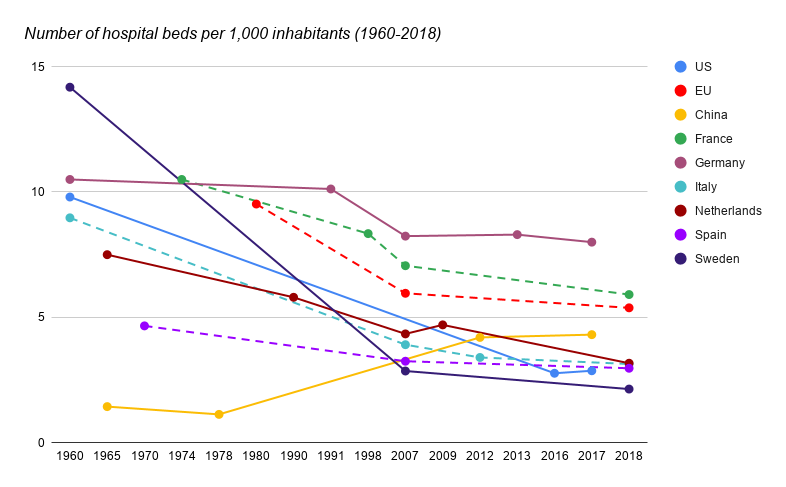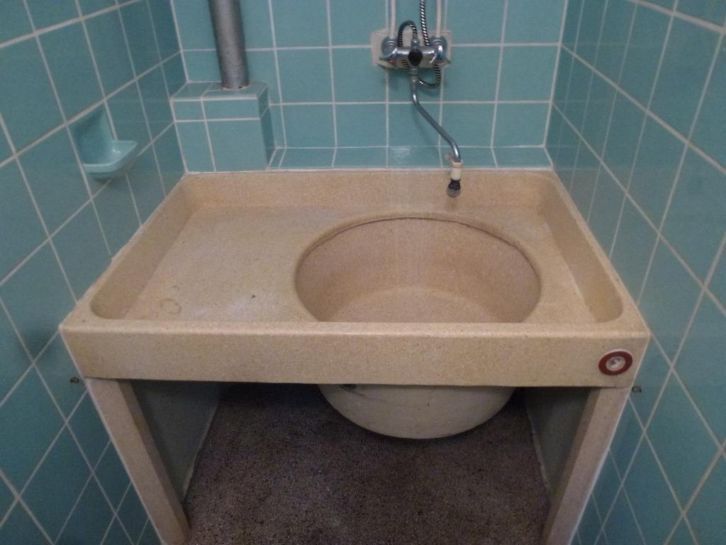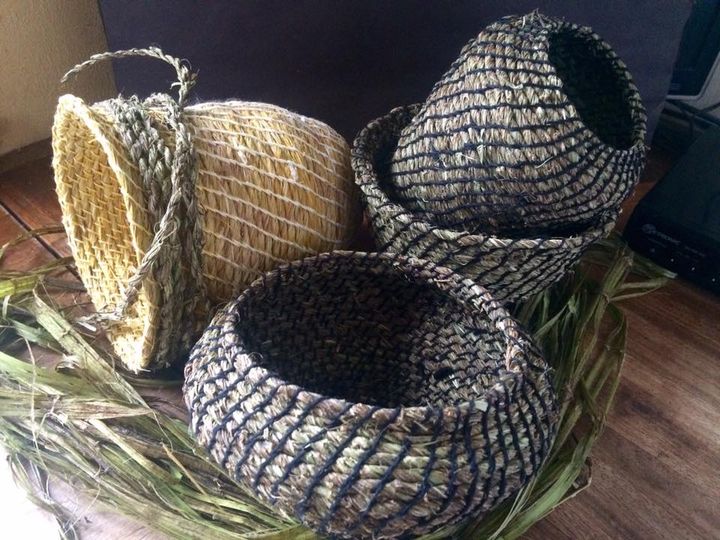Coppicing & pollarding trees could provide us with energy, materials and food — but also with a lot of glow-worms (or fireflies), a research paper argues: [Read more…]
Number of Hospital Beds per 1,000 Inhabitants (1960-2018)
Corona restrictions around the world are primarily aimed at not overwhelming hospital capacity. But hospital capacity is not what it used to be. In the 1960s and 1970s, the US and many European countries had around ten hospital beds per thousand inhabitants. Nowadays, the US has less than three, while many European countries have less than five.
Hospital beds are defined as beds that are maintained, staffed, and immediately available for use. Total hospital beds include acute care beds, rehabilitative beds and other beds in hospitals. [Read more…]
Solar Powered Website: Uptime for 2020
In 2020, our solar powered website obtained an uptime of 95%, meaning that it was offline for 444 hours or 20 days. Unsurprisingly, most of the downtime is concentrated in the winter months.
The graph above (click to enlarge) shows battery storage capacity in relation to the weather in Barcelona from January to December 2020. Yellow is sunny, grey is cloudy, blue is rain. From May to November, we were online without interruption for almost 6 months.
The data were collected and visualised by Roel Roscam Abbing and David Benqué.
The “Lavet”: A Sink, Bathtub, Shower, and Washing Machine on 1m2 of Space
Image: Marktplaats.
The lavet is a typically Dutch invention that was mainly used in social housing in the 1950s and 1960s. It was produced up to 1975, with a total production of about 1 million. The lavet is somewhere between a sink and a bathtub. It consists of a plateau with a raised edge, in which on one side is a 40 cm deep tub with a diameter of almost 60 cm. Unique to the design is the multi-functionality. The lavet fulfilled the functions of a bathroom and laundry room but required only one square meter of space. [Read more…]
Follow the Science?
Two great articles in The New Atlantis 2021 spring issue:
“Scientific “objectivity” emerges not from the unique cognitive qualities or neutrality of researchers but from their critical engagement with each other’s work…. Though the political harms of misplaced certainty are now much discussed, we only hear about one side of the equation. The trouble always seems to be with “conspiracy theorists” who fail to face up to reality, to scientific fact. But the relationship of “debunkers” to certainty is not all that different… Conspiracism and scientism are jointly preoccupied with certainty. They enjoy a fantasy in which experts are uniquely able to escape the messiness of politics, discern the facts plain and simple, and from their godlike viewpoint turn back to politics and dispense with it. Both seduce members of open, uncertain societies with the promise of a more simply ordered world… ”
Read more: The Danger of Fact-ist Politics.
“What “follow the science” has amounted to, ultimately, is a shifting of agency for decision-making onto scientific and bureaucratic bodies like the CDC and the WHO, while obscuring the fact that the decisions to be made remain fundamentally political … The “science” that politicians have claimed to follow rarely resembles the centuries-old process of making informed guesses, testing hypotheses, assembling data, and asking new questions in an effort to teeter toward the truth. It is rather a void at the center of technocratic politics into which leaders cast their responsibility.”
Read more: The Cop-Out of “Follow the Science”.
Nettles are the fibre of the landless
Nettles for Textile is a website dedicated to all things nettle related, especially the sharing of skills and techniques that will help to best utilise this incredible resource for local textile production. There’s also a great selection of references on the historical use of nettles.










